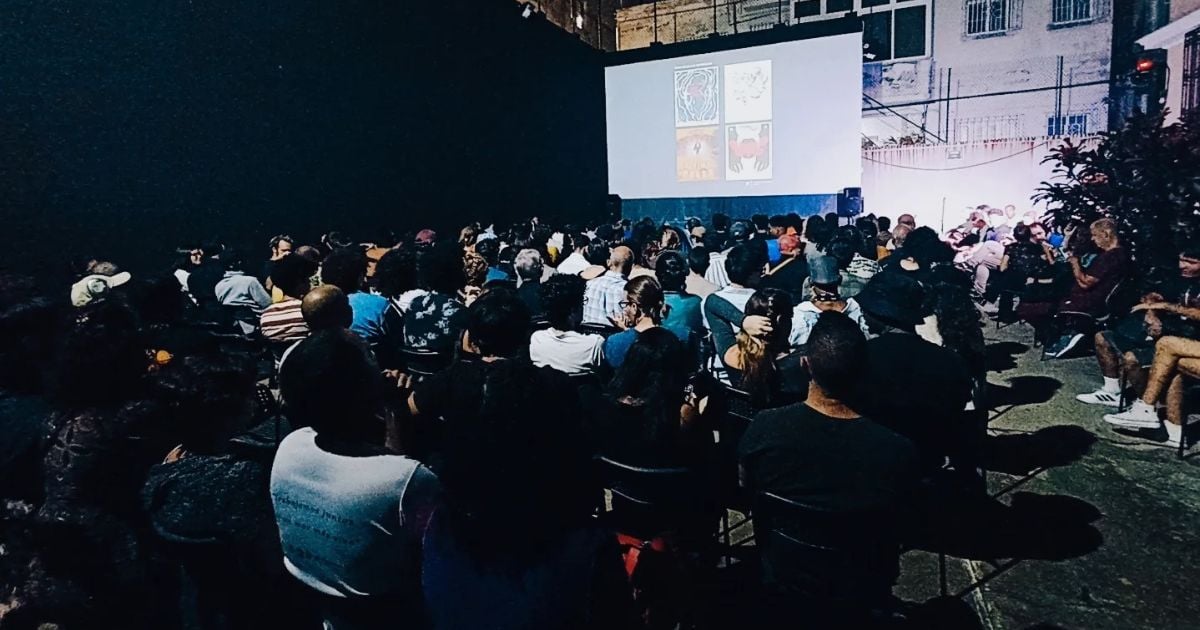Orlando Mora Cabrera, the director of the film "To Kill a Man", shared on social media that his movie, after being banned from the latest edition of the International Festival of New Latin American Cinema in Havana, managed to bypass censorship and was shown in several alternative venues in Cuba. In a Facebook post this past Saturday, Mora expressed his gratitude to those who supported the screenings and highlighted the Cuban public's interest in the film.
"'To Kill a Man' was screened for Cuban audiences in two alternative venues this week. I am extremely thankful to all the individuals and organizations that offered us their support and connection," Mora wrote.
The film was presented by the Ludwig Foundation of Cuba in collaboration with the International Film and Television School of San Antonio de los Baños. According to Mora, attendance exceeded expectations: "The audience surpassed the venue’s capacity, necessitating three screenings," he detailed.
Additionally, the Norwegian Embassy in Cuba hosted the film at its space known as 'Cinema Under the Stars', where once again, high demand demonstrated the audience's interest: "The turnout exceeded expectations," the director noted.
Challenges for Cuban Filmmakers
Despite the joy of sharing his work with Cuban audiences, Mora reflected on the difficulties faced by filmmakers on the island. "I am grateful that, despite everything, the film could be shared. Other films have not been as fortunate," he lamented, referring to numerous Cuban films that have been censored.
The director also expressed his commitment to creating cinema that challenges the social and political realities of the country: "In the current circumstances, making a film that questions the contradictions of our social and political reality, with ethical and aesthetic demands, is necessarily a cinema of resistance."
He concluded his message with a hope that transcends his own work: "My thoughts are with all the censored Cuban films. My hope: that all Cuban cinema can be viewed in Cuba."
Continued Repression Against Filmmakers
The screening of "To Kill a Man" in alternative spaces represents not only a victory for independent Cuban cinema but also a reminder of the challenges creators face in expressing their voices within a restrictive context. The Cuban regime's persecution of the film's creative team persisted even after the movie was censored at Cuba's main cinematic event.
The director was detained on December 21 by three agents from the Ministry of the Interior (MININT), who allegedly took him to the police station at Zapata and C, in El Vedado. The Cuban Filmmakers Assembly (ACC) reported on Facebook that the artist's whereabouts are currently unknown. After several attempts to contact him, it was confirmed he is not at that station, and his location or the reasons for his arrest remain undisclosed, the report stated.
Moreover, the government placed the actress and activist Kiriam Gutiérrez under house arrest to prevent her from attending the premiere of her film "To Kill a Man". In statements to Cubanet, the artist mentioned receiving a call from a State Security agent who "threateningly told me I should distance myself from the film."
Key Questions about Censorship and Cuban Cinema
What alternative venues hosted "To Kill a Man" in Cuba?
The film was shown at the Ludwig Foundation of Cuba and the Norwegian Embassy's 'Cinema Under the Stars'.
Why was Orlando Mora Cabrera detained?
The specific reasons for Orlando Mora Cabrera's detention are unknown, as his whereabouts and the motives behind his arrest remain undisclosed.
What challenges do Cuban filmmakers face?
Cuban filmmakers struggle with censorship and restrictions on expressing social and political realities through their work.
